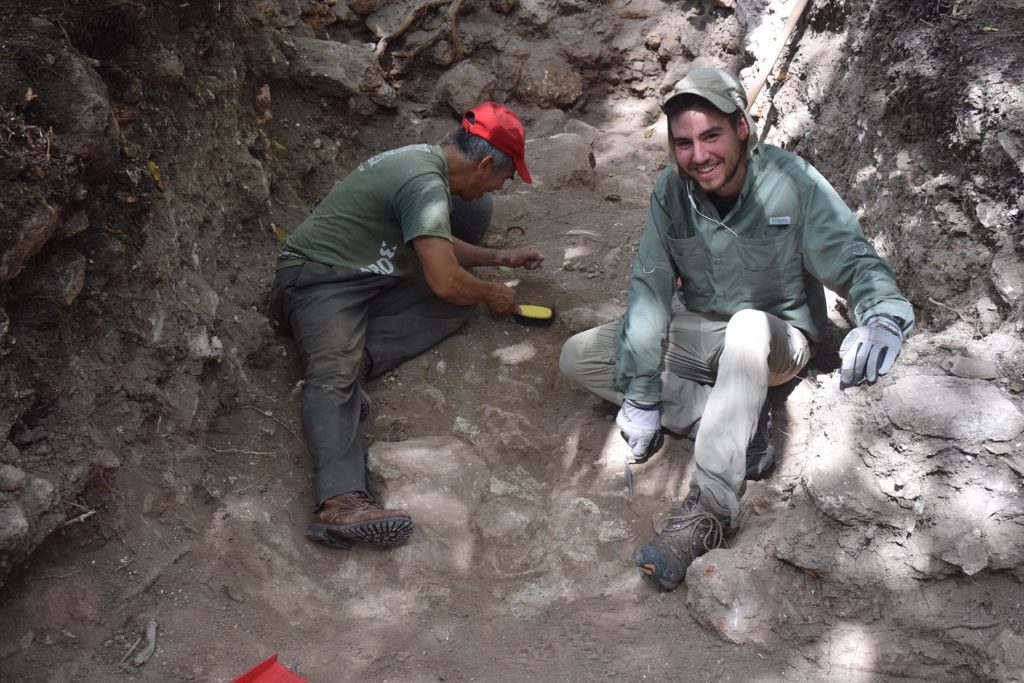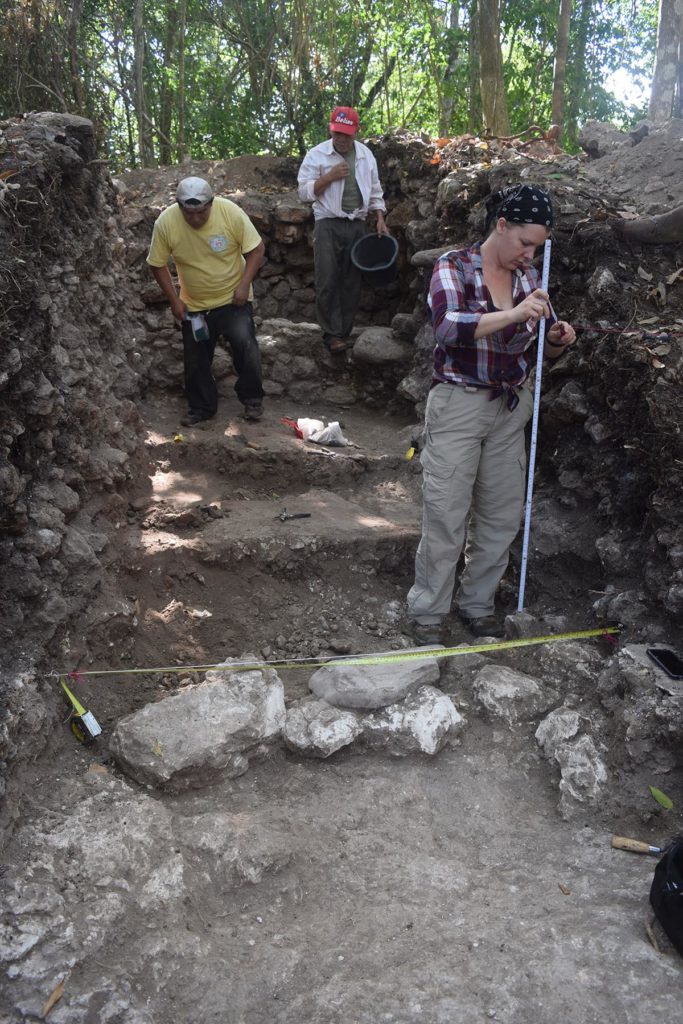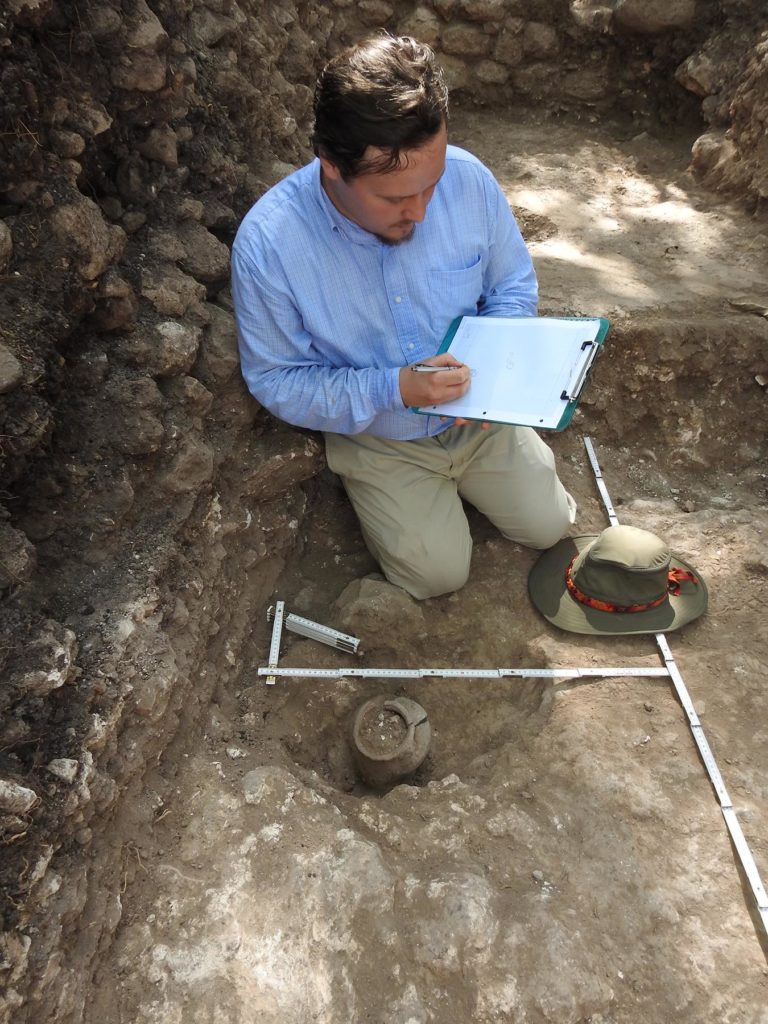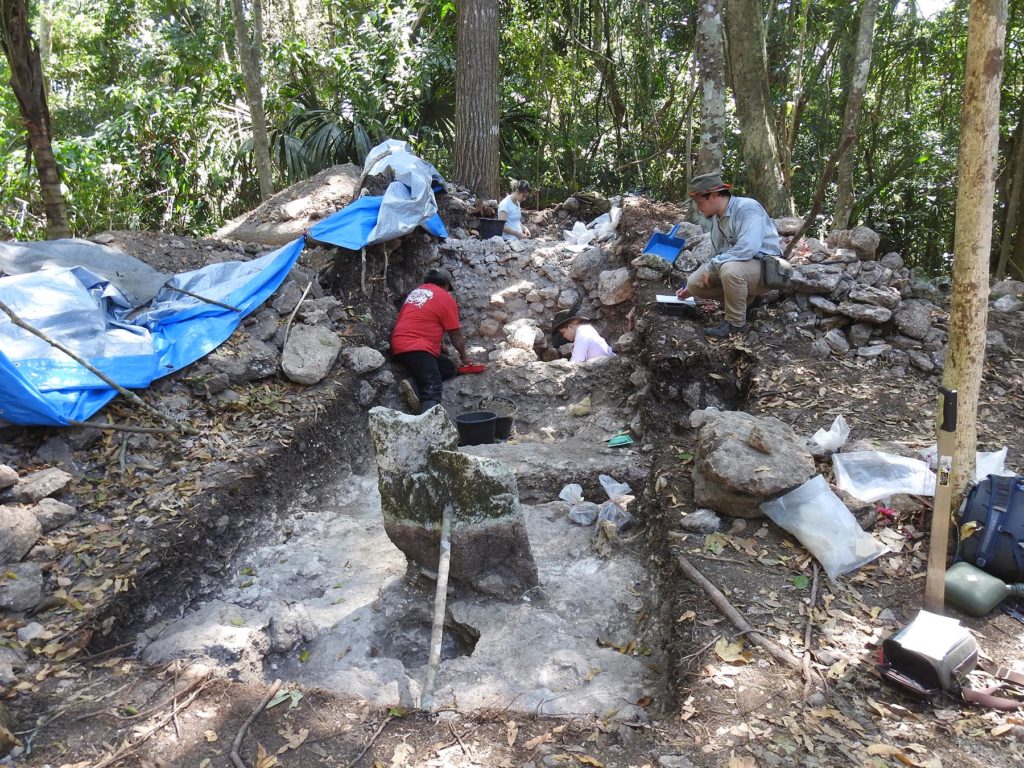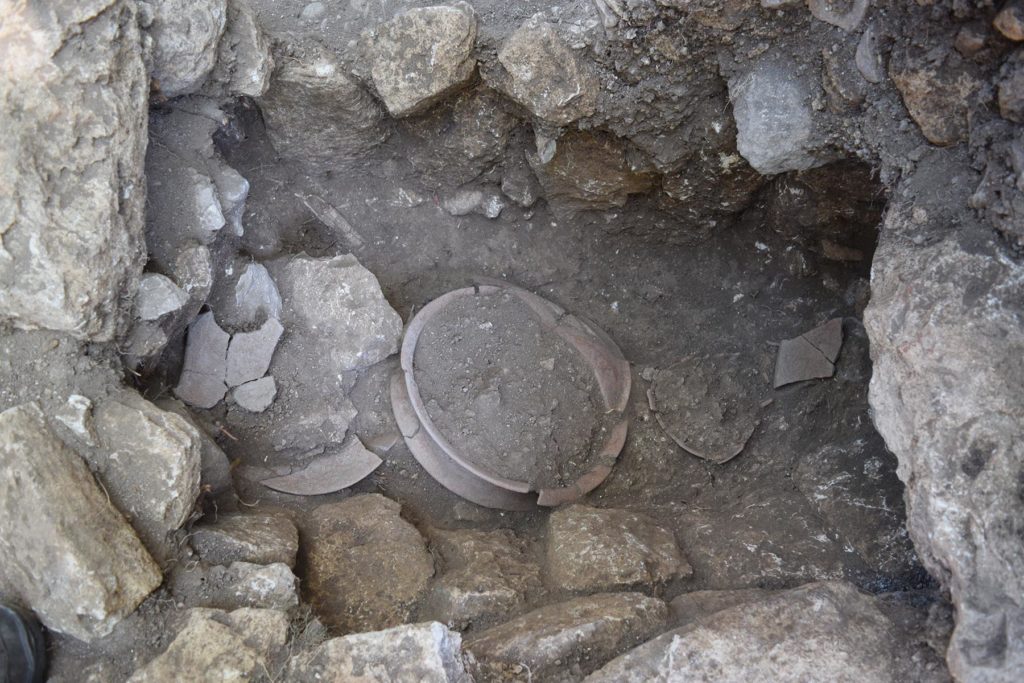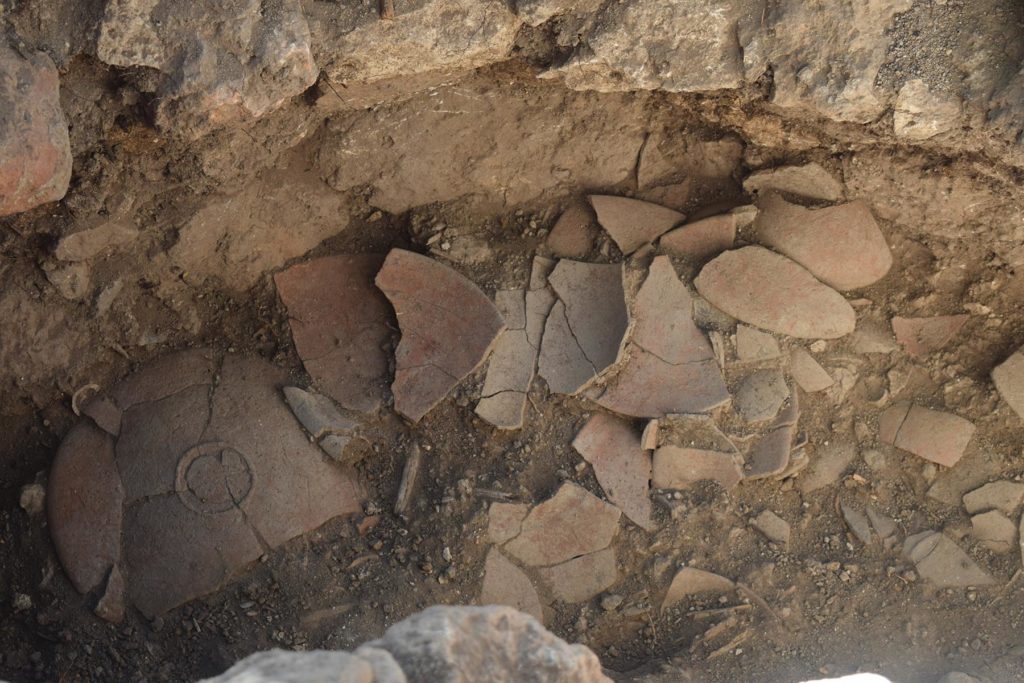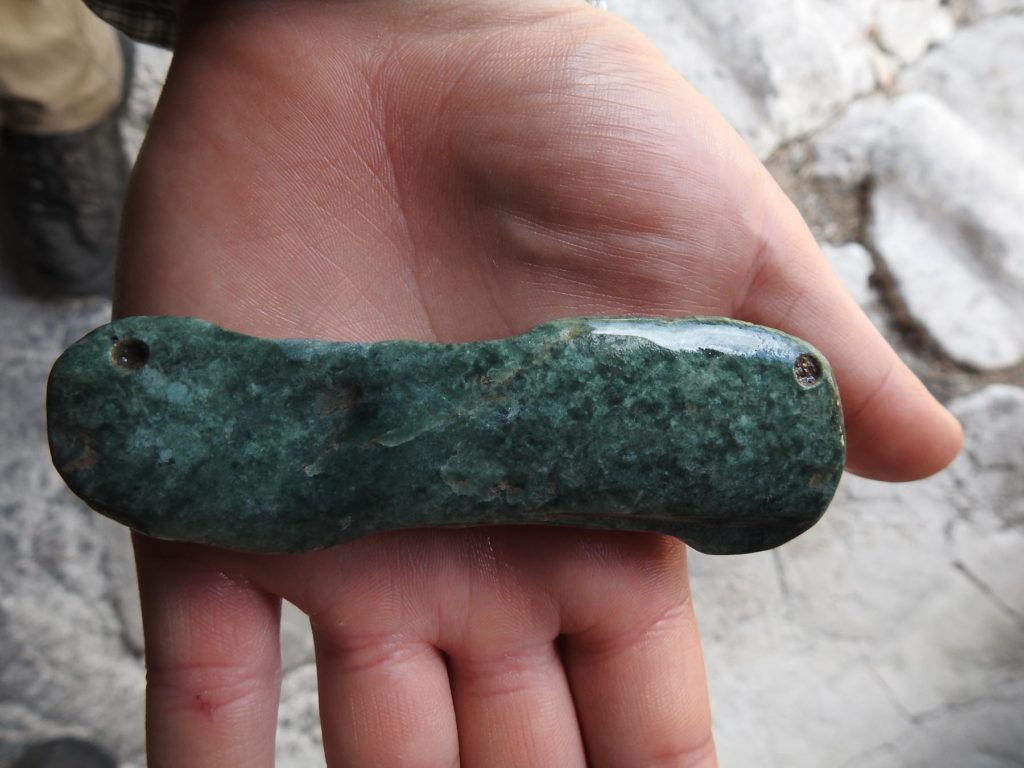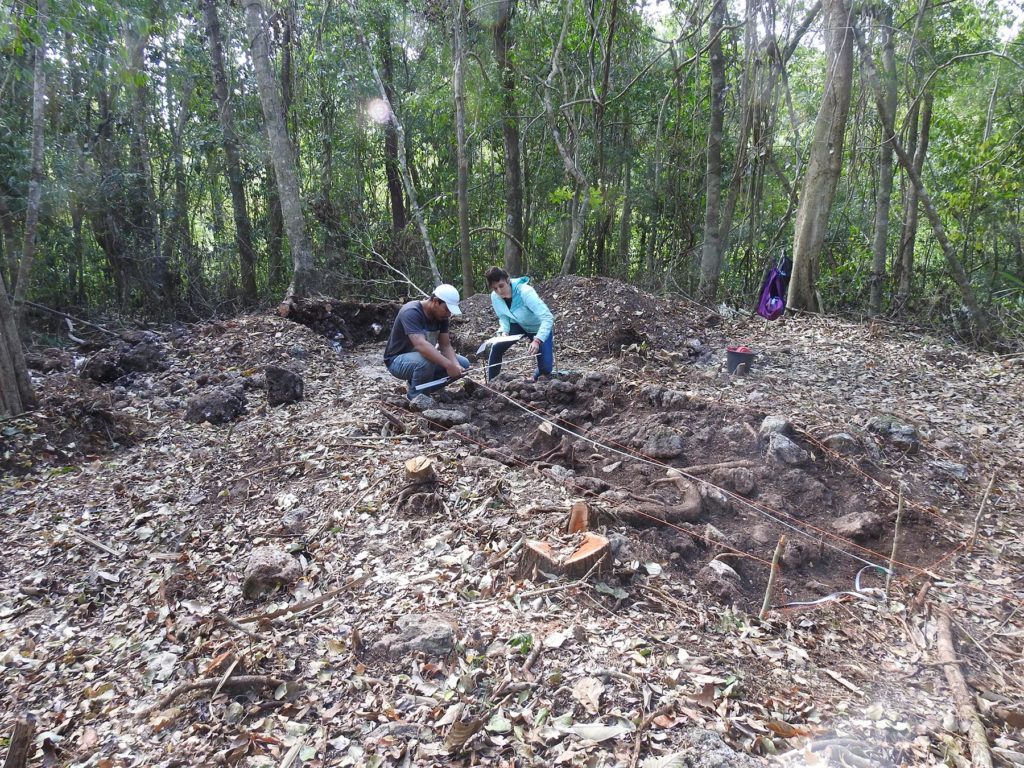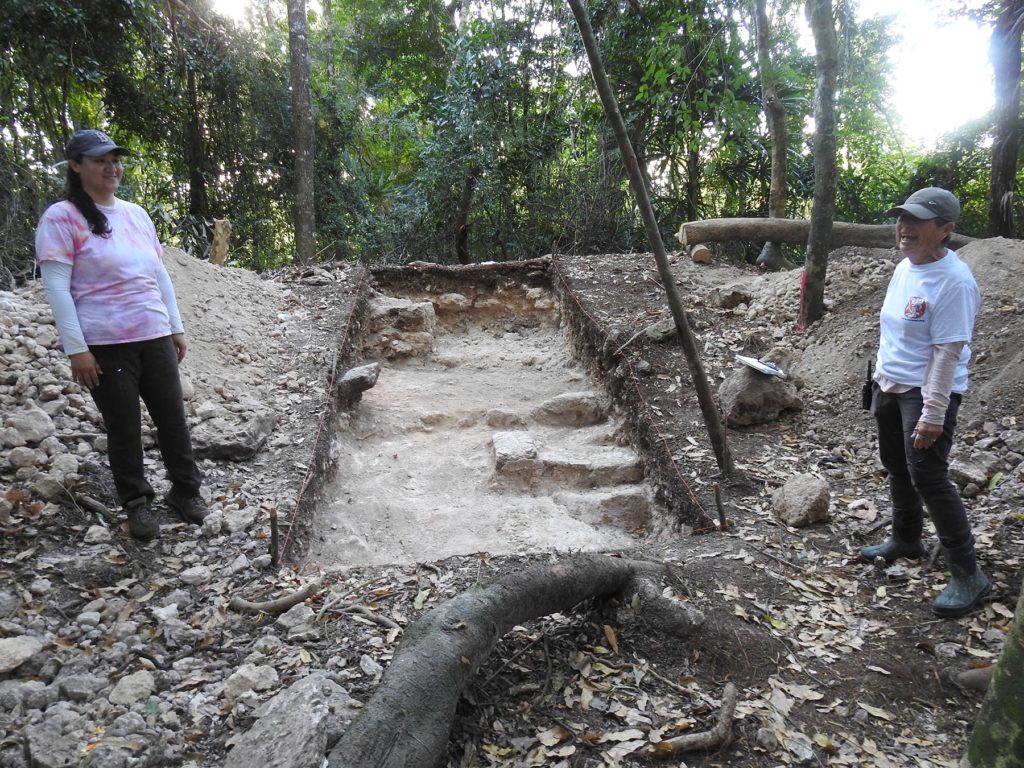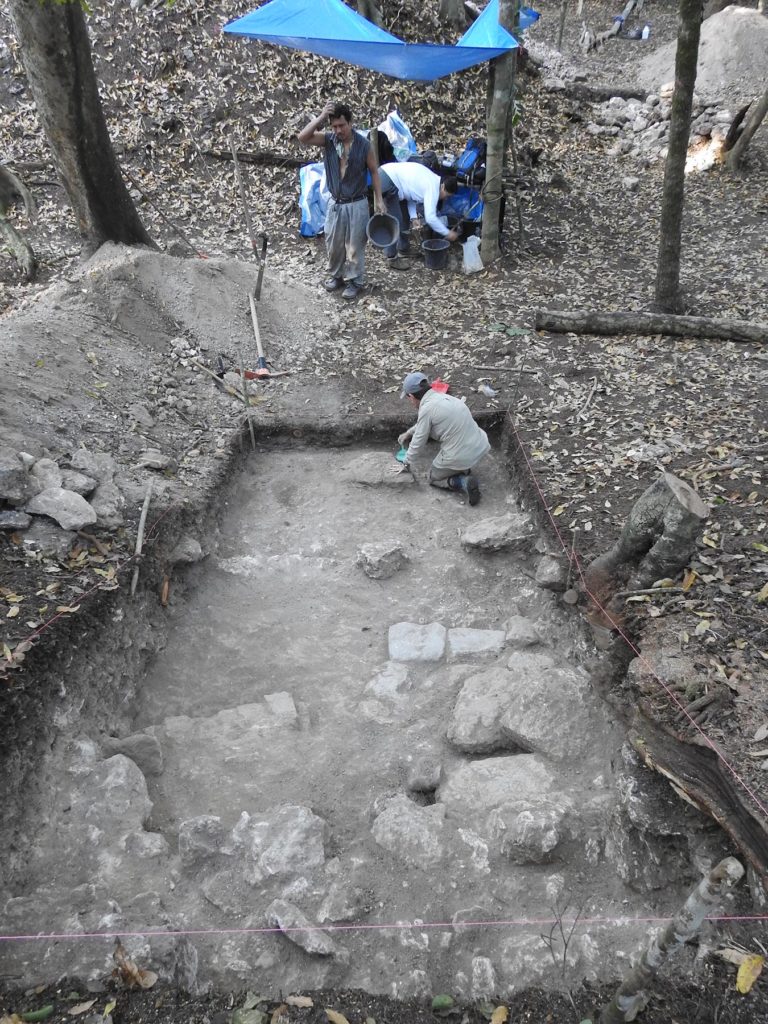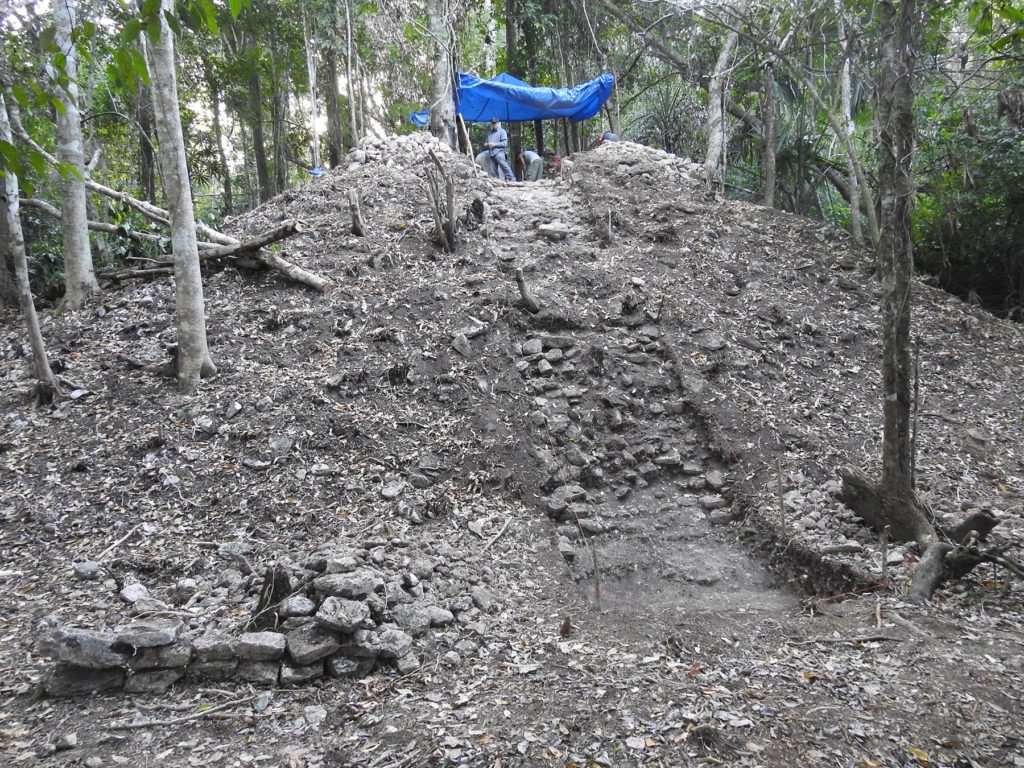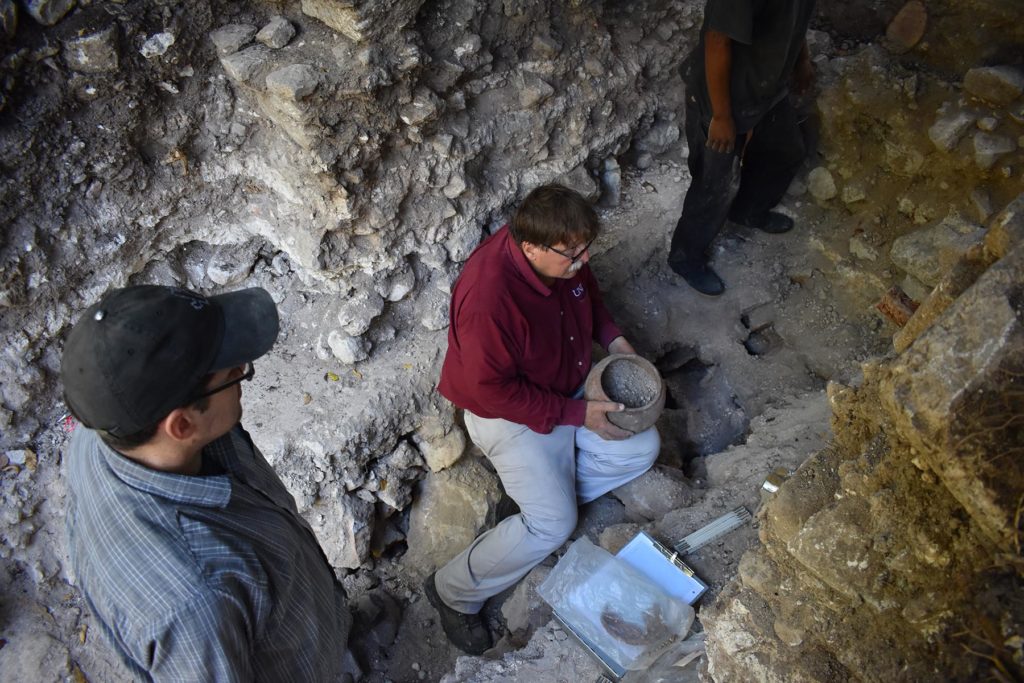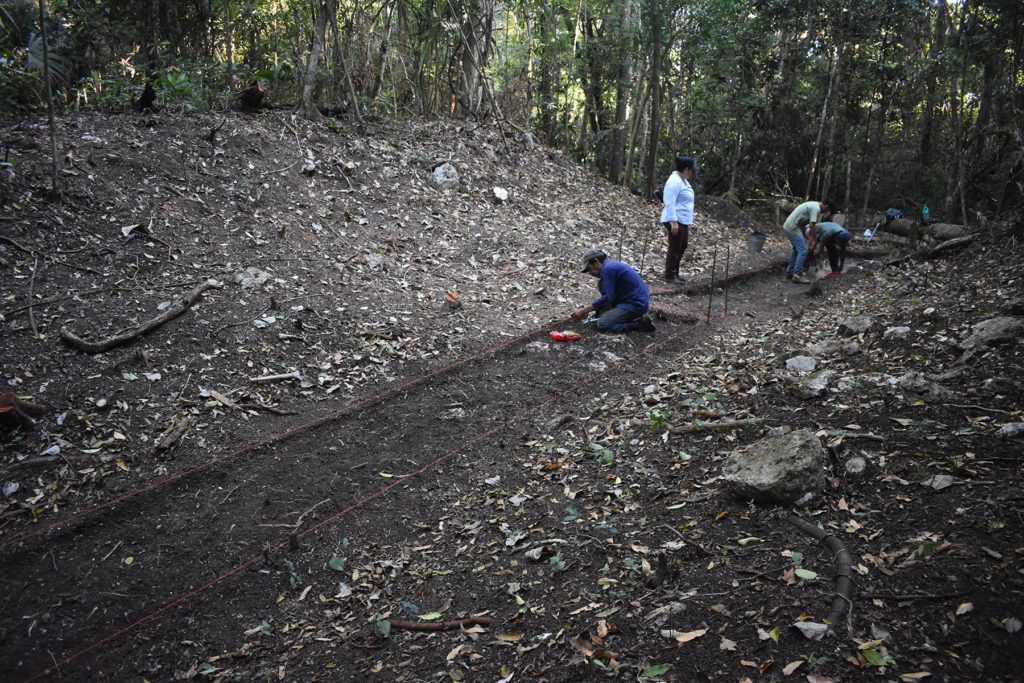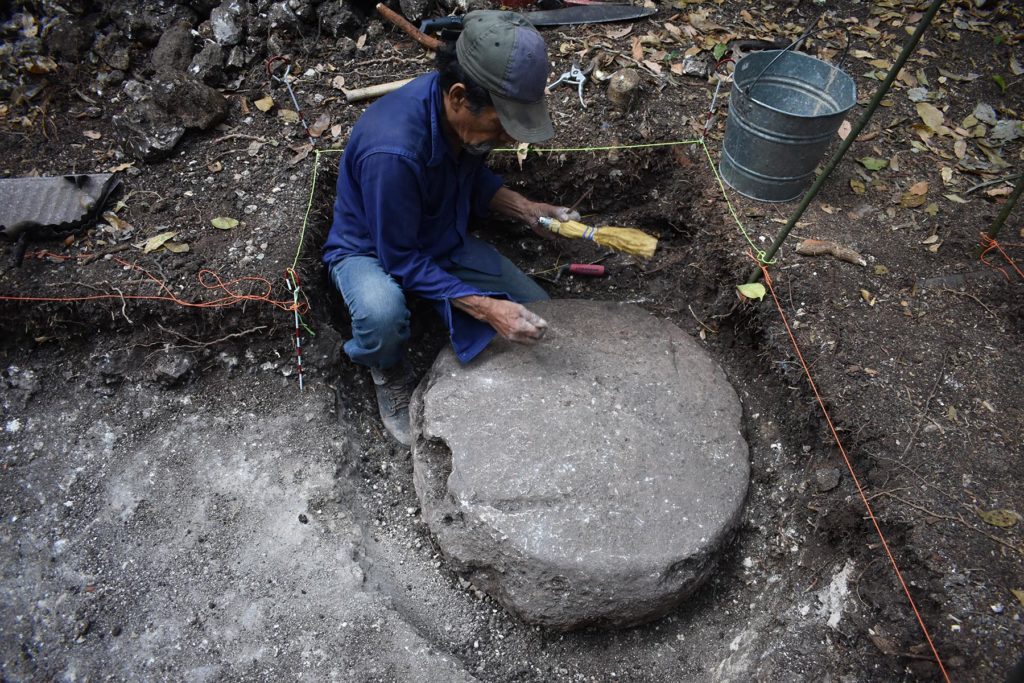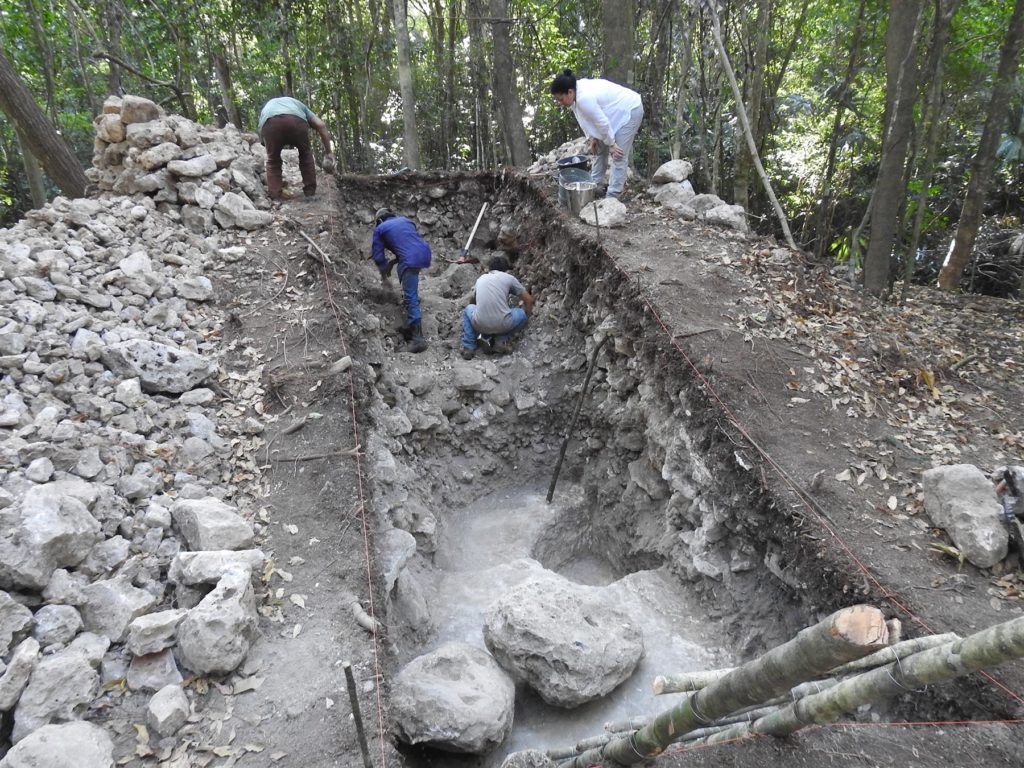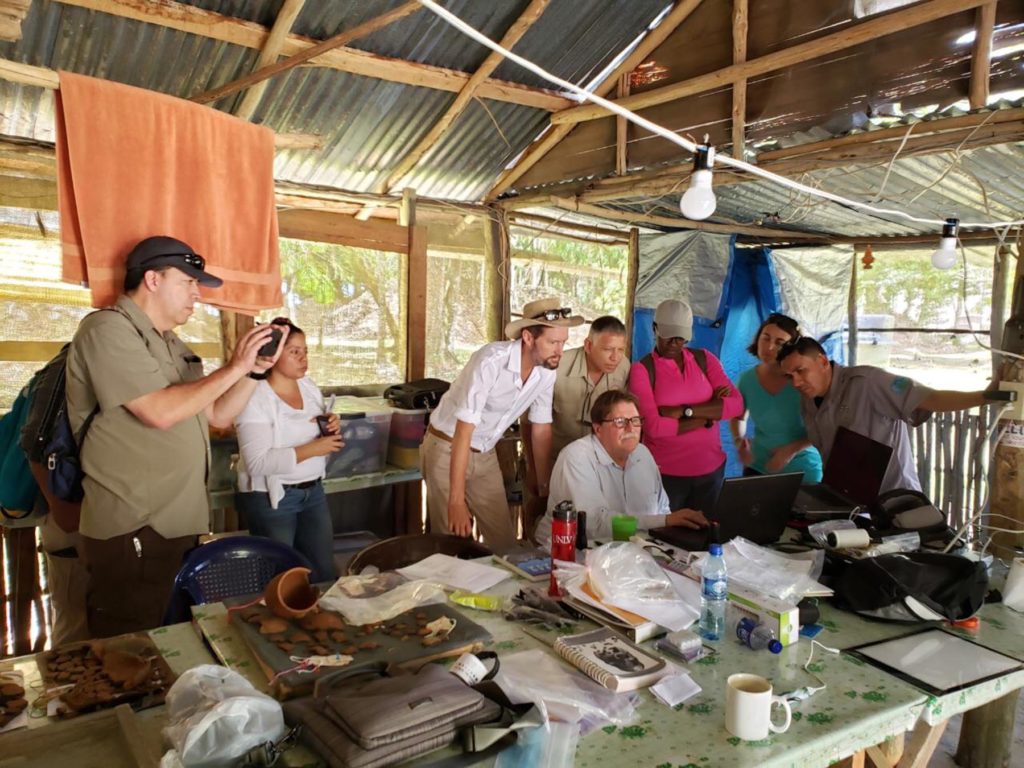Make or break week
This was the “make or break” week of the field season,
where everything needed to be opened and the end of the excavations needed to be in sight in preparation for the laboratory work that will occupy the final two weeks of the field season. Luckily, this was also a very important week for in-field discoveries.
In Puchituk West’s Barracuda, the building fill in the northern building axial excavation (C216C) continued to be removed to bedrock. This excavation should be finished early next week. The axial trench in the eastern building (C216B) also continued to be removed to bedrock, revealing several interesting finds. Once the upper building was removed, a piece of a lower plaza floor was recovered in the front of the structure. Removal of this floor revealed two caches dating to minimally the Early Classic Period, one a small flaring-walled bowl and the other a shoe-pot.
Bones, bowls and a breast pendant
In Tuna, this was really a hectic week. The southern end of the front crypt was excavated and drawn, revealing a mass of disarticulated bone and then an inverted ring-based dish above a skull. The medial crypt yielded an Early Classic burial with three complete vessels, including a basal-flanged bowl with partial lid. And, finally, the rear tomb held a mass of broken and intermixed ceramic vessels as well as a host of smaller artifacts, including a jadeite breast pendant; this deposit is very slow going because there is so much artifactual material and bone.
In Snapper, excavation began on C218B, the presumed sweat-bath. A section was completed for C218C.
On our second front, Monterey, excavations continued in Pebble in C219C and C219D. While C219D appears to be a simple supporting platform, it also covered part of a construction that was appended directly to bedrock. C219C is a puzzle. There is no really good architecture in this locus, only fragments of two stairs, one that may go with the last building and an earlier one that is set at a 45 degree angle to the investigation. Hopefully, more excavation next week will make sense of this locus.
Monterey excavation reveals Preclassic Period artifacts
The excavations into “MPA” (or Monterey Public Architecture) produced interesting finds this week. In the eastern pyramid (C220B), excavation focused on the summit going down between the inner door jambs. A series of floors were uncovered, including one that appeared to abut an earlier back wall.
Going deeper yet, the excavators stripped off a basal floor that was set on dry core fill and uncovered two caches within the dry core fill. The first was a lip-to-lip set of bowls that contained a jadeite bead and the second was a lidded barrel. The lid to the ceramic barrel was broken (some outside and most inside the vessel); the contents of the barrel turned out to be 3 flamingo-tongue shells, a dozen smaller shell beads, and two jadeite beads. Importantly, these two deposits show that the pyramid was constructed in the Preclassic Period. Excavation was also undertaken in the alley for the Monterey ballcourt (C220C and C200D), revealing a central plain ballcourt marker in the middle of the court; the dating for the marker is not known, but is likely consistent with the construction of the eastern pyramid.
Finally, excavation wrapped up in Boulder (C221B) this week. The front part of the excavation was dug down to bedrock and the rear part of the excavation went as deep as we could go into dry core fill without destabilizing the structure. An interesting feature in bedrock was a meter deep circular hole with a flat bottom that was half-sectioned by the excavation’s southern wall. What is also interesting at Boulder is the fact that the entire platform and structure are a single phase construction on bedrock, presumably undertaken in the Terminal Classic Period.
U.S. Embassy visits Caracol
Three other things happened this week. Late Thursday morning, we had a visit from the U.S. Embassy to Caracol (in concert with IOA representatives Allan Moore and Brian Woodye) and I provided background to the group about the site and to the LIDAR operations that we had undertaken; the Charge d’Affaires was particularly interested in the site’s archaeology and size of the city.
On Friday around noon, the Mahindra “popped” a bolt that held its frame together causing the front passenger side to sink and almost touch the front wheel. While the truck would drive, it had some difficulty, especially with hard left turns. Sunday morning, Brian and a mechanic appeared at 6:30 AM with a replacement bolt, had 7 AM breakfast, and fixed the Mahindra, taking all of 15 minutes (and leaving shortly after 8 AM). It is good to have someone who knows exactly what they are doing. At the end of the day on Friday, Bruce Love drove into camp to begin doing night photography of Caracol’s monuments; he will be here for just over a week.
